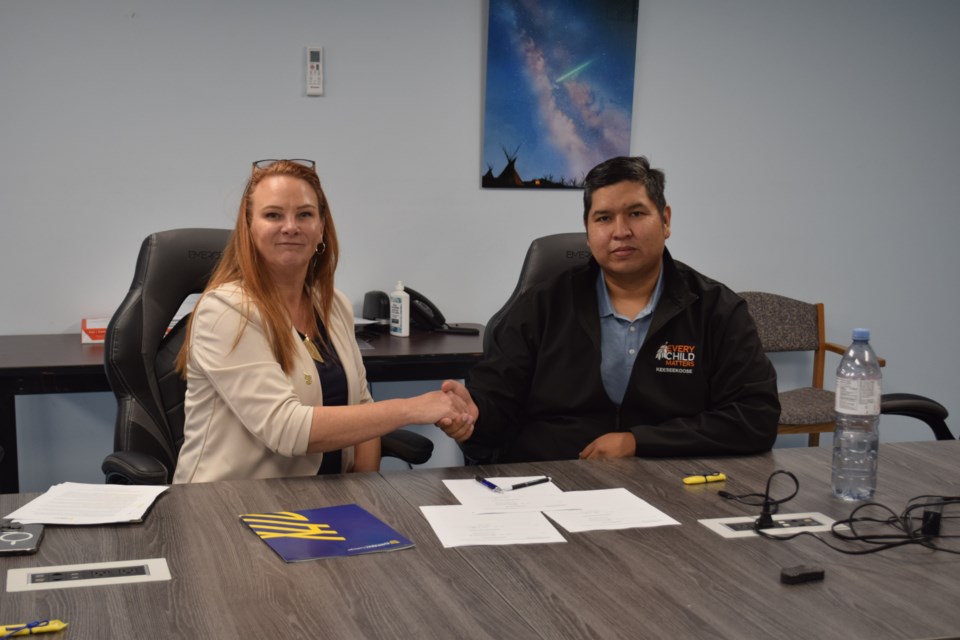KEESEEKOOSE — A continued partnership between Suncrest College and the Keeseekoose First Nation is bringing cutting-edge technology to farming practices, marking a significant step towards economic development and community empowerment. The initiative aims to integrate innovative technologies into traditional farming methods, transforming agriculture in the region.
Suncrest College Applied Research Coordinator Greg Tomcala explained the concept of a "smart farm," where new and emerging technologies are introduced to increase efficiency and productivity. “The purpose behind it is to leverage technologies to make farming either more efficient or more effective,” said Tomcala. “Whether it’s through automation, GPS autosteer, or camera integration on vehicles and tractors, the goal is to make the farm more profitable and reduce the workload.”
He emphasized the growing role of technology in modern agriculture, noting that younger generations are more adept at handling the increasingly computerized equipment. “The younger people tend to thrive with it a little more, probably because we’ve had more exposure to it growing up,” Tomcala added. “But the older generations struggle with it, so we’re trying to harness the potential of younger individuals and train them on these systems.”
The smart farm project is part of a broader collaboration between Suncrest College and Keeseekoose First Nation, with the latter leading the decision-making process. “We might have five or ten projects that we would like to try, but ultimately they are the ones saying yes or no,” Tomcala said. “We’re here to assist in any way, but Keeseekoose is in the driver’s seat.”
Chief Alvin Musqua expressed optimism about the partnership, which began during Chief Lee Kitchemonia’s term in office. “I feel really good about this collaboration,” he said. “We’ve overcome some barriers, and now we’re moving forward. Any opportunity that can bring better services and economic development to our community is something we would pursue.”
Musqua also highlighted the importance of research and development in securing the community’s future success in farming. “Having research and development strengthens our chances of success if we decide to move forward with farming our own lands,” he said.
In addition to the smart farm initiative, Musqua touched on the community’s interest in expanding educational opportunities, particularly in mining. Drawing from his own experience, Musqua emphasized the positive impact of mining careers on individuals and the community. “My two brothers and I were part of a mining course, and I’ve seen the benefits firsthand,” he said. “We’re reaching out to organizations like Morris Interactive to bring those opportunities to our members.”
Musqua noted that mining careers can offer significant financial stability, with potential salaries exceeding $100,000 per year. “As long as you have a Grade 12 education, no criminal record, and can pass a drug test, you can have a successful career,” he said.
Despite early challenges, Musqua is confident that the partnership with Suncrest College will benefit the Keeseekoose First Nation in the long run. “We’ve overcome some initial hurdles, and now, as we move forward, I believe it’s going to be good for our community and everyone involved,” he concluded.
The collaboration between Suncrest College and Keeseekoose First Nation marks a new chapter in regional development, blending traditional farming practices with modern technology, and opening new economic and educational opportunities for the community.




